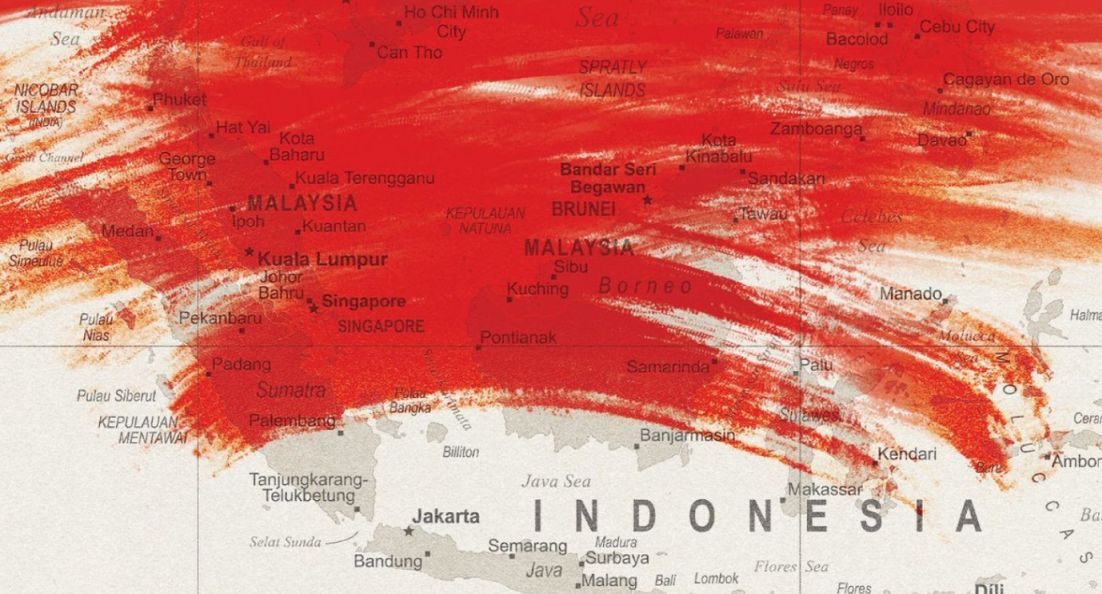By Eric Vandenbroeck
and co-workers
Fear Of Taiwan Conflict Grows
The United States and
the Philippines announced an expansion of America’s military presence in the Southeast
Asian country on Thursday, with U.S. forces granted access to four more
military camps, effectively giving Washington new ground to ramp up deterrence
against China.
The agreement between
the longtime allies was made public during the visit of U.S. Secretary of
Defense Lloyd Austin, who has led efforts to strengthen America’s security
alliances in Asia in the face of China’s increasing assertiveness toward
Taiwan and territorial disputes in the South China Sea.
The allies also said
that “substantial” progress had been made in projects at five Philippine
military bases, where U.S. military personnel were earlier granted access by
Filipino officials. Construction of American facilities at those locations has
been underway for years but has been hampered by unspecified local issues.
Austin thanked President Ferdinand Marcos
Jr., whom he briefly met in Manila, for allowing the U.S. military to
broaden its presence in the Philippines, Washington’s oldest treaty ally in
Asia.
“I have always said
that it seems to me that the future of the Philippines and the Asia-Pacific
will always have to involve the United States simply because those partnerships
are so strong,” Marcos told Austin.

American leaders have
long sought to reorient U.S. foreign policy to better reflect the rise of
China as a significant military and economic competitor.
Thursday’s
announcement comes as tensions between China and Taiwan have risen. China
claims the self-ruled island as its territory — to be taken by force if
necessary — and Beijing has sent warships, bombers, fighter jets, and support
aircraft into airspace near Taiwan on a near-daily basis, sparking concerns of
a potential blockade or military action.
China and the
Philippines, along with Vietnam, Malaysia, Brunei, and Taiwan, have also been
locked in increasingly tense territorial disputes over the busy and resource-rich South China Sea. Washington lays no
claims in the strategic waters. Still, it has deployed its warships and fighter
and surveillance aircraft for patrols that promote freedom of navigation and
the rule of law but have infuriated Beijing.
In a televised news
conference with his Philippine counterpart, Carlito Galvez Jr., Austin assured
U.S. military support. He said the 1951 Mutual Defense Treaty, which obligates
the U.S. and the Philippines to help defend each other in major conflicts,
“applies to armed attacks on either of our armed forces, public vessels or aircraft
anywhere in the South China Sea.”
“We discussed
concrete actions to address destabilizing activities in the waters,” Austin said
without elaborating. “This is part of our effort to modernize our alliance.
These efforts are significant as the People’s Republic of China continues to
advance its illegitimate claims in the West Philippine Sea.”
Chinese Foreign
Ministry spokeswomen Mao Ning accused the U.S. on Thursday of pursuing “its
selfish agenda” with the new arrangement. Beijing has long criticized
U.S.-Philippine military cooperation as an effort to contain its growing
influence.
“The U.S. has adhered
to a Cold War zero-sum mentality and strengthened military deployment in the
region,” Mao told reporters at a daily briefing. “This act escalates regional
tensions and endangers regional peace and stability.”
In their news
conference, Austin and Galvez declined to provide more details on the
agreement. The U.S. defense chief said it did not mean the re-establishment of
permanent American bases but noted that “it’s a big deal.”
Galvez said there was
a need for more consultations, including with local officials in provinces
where visiting U.S. forces would establish a presence in Philippine military
camps.
A few dozen leftist
activities held a noisy protest Thursday and set a mock U.S. flag ablaze
outside the main military camp where Austin held talks with his Philippine
counterpart. While the two countries are allies, leftist groups and
nationalists have resented and often protested boisterously against the U.S.
military presence in this former American colony.
The country used to
host two of the largest U.S. Navy and Air Force bases outside the American
mainland. The bases were shut down in the early 1990s after the Philippine
Senate rejected an extension, but American forces later returned for
large-scale combat exercises with Filipino troops.
The Philippine
Constitution prohibits permanently basing foreign troops and their involvement
in local combat. The countries’ Enhanced Defense Cooperation Agreement allows
visiting American forces to stay in rotating batches in barracks and other
buildings they construct within designated Philippine camps with their defense
equipment, except nuclear weapons.
Philippine military
and defense officials said in November the U.S. had sought access to five more
local military camps, mostly in Luzon's northern region.
Two additional camps
where the U.S. wanted to gain access are in Cagayan province near Luzon
island’s northern tip, across a sea border from Taiwan, the Taiwan Strait, and
southern China. Other camps that would host American forces are along the
country’s western coast, including in the provinces of Palawan and Zambales,
which face the disputed South China Sea.
“The Philippine-US
alliance has stood the test of time and remains ironclad,” the allies said in
their statement. “We look forward to the opportunities these new sites will
create to expand our cooperation.”
Austin is the latest
high-ranking American official to travel to the Philippines after Vice
President Kamala Harris visited in November in a sign of warming ties after a
strained period under Marcos’s predecessor, Rodrigo
Duterte.
Duterte had nurtured
cozy ties with China and Russia and, at one point, threatened to sever
relations with Washington, eject American forces, and abrogate the Visiting
Forces Agreement that allows thousands of American forces to come each year for
large-scale combat exercises.
“I am confident that
we will continue to work together to defend our shared values of freedom,
democracy and human dignity,” Austin said. “As you heard me say, the United
States and the Philippines are more than just allies. We’re family.”
For updates click hompage here